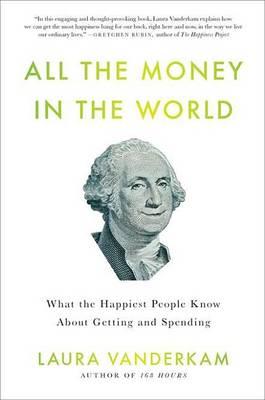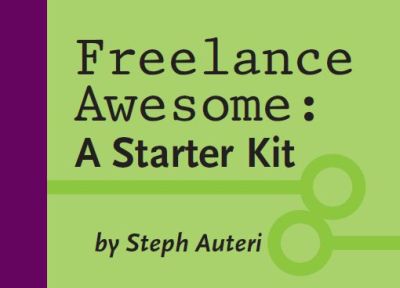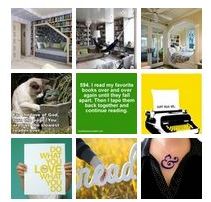 Blogging buddy and author Brette Sember has about about 40 titles to her name at this point, a number that often serves to make me feel like a lazy-ass bum. Like, what have I been doing all these years!? Her output has been so extensive that her published books fill one and a half shelves on her office bookcase.
Blogging buddy and author Brette Sember has about about 40 titles to her name at this point, a number that often serves to make me feel like a lazy-ass bum. Like, what have I been doing all these years!? Her output has been so extensive that her published books fill one and a half shelves on her office bookcase.
She published her first book when she was home on maternity leave from her law practice in 1998. A publisher called and asked if she was interested in writing a book about how to file for divorce in New York. She never looked back. Now, she’s spending time promoting her latest book — The Muffin Tin Cookbook, due out in April — and she’s finding the publicity process wildly different from what it was just 14 years ago. Lucky for us, she’s willing to share what it’s like to be your own best publicist.
1. You’ve written a slew of books, in a variety of subject areas. Considering how labor-intensive book development can be, what has drawn you to these longer-form projects, and how the hell do you maintain such an impressive output?
I love books. I love reading them and I love writing them. I’ve done my share of magazine work and it’s not my favorite process. A book is my vision (with input from my editor). I’m just suited to writing long-form and I enjoy being able to have the time and space to explore things. My mom is also an author, so I guess it is in my blood.
I have some books I wrote which were renamed in later editions, so that makes my numbers look higher. I also have some books where publishers took my old books and repackaged parts of them as new titles to be more targeted or specific. I co-author a lot of books, which means I’m not writing the entire thing on my own. Writing books is my full-time job, so I do have time to devote a lot of energy and thought to what I do. Most of all though, I just love what I do.
2. Over the years, we’ve seen book publishers’ marketing and publicity budgets shrink, forcing authors to shoulder more of the promotional responsibility. What was your experience like in this area with the first few books you published, and how has it shifted over the years?
This has changed a lot in the 14 years I’ve been doing this. In the beginning, my publicists set things up for me and I did the interviews. Period. I started to do some online moving and shaking very early on, though, and was successful at getting my books reviewed or mentioned on early blogs. Now, of course, the burden is almost entirely on the author. I rely on publicists to mail out the review copies I get requests for and that’s about it. It’s hard because as an author you have to wear so many hats and they might not all come naturally. Just because you’re good at writing doesn’t mean you’re good at publicity, so I think this places a heavy burden on many authors. And it’s not like you can just hire your own publicist — you’re looking at a commitment of about $10,000 to do that. So most authors are left trying to get this done themselves, in and around their other writing work.
3. Considering the necessity of self-promotion, what do you see as the main benefits of going through a traditional publisher?
I do self-publish several titles myself as Kindles and Nooks and I love the freedom it gives me to write what I want and get it out there immediately. I still love print books, though, and for long projects that require a lot of my time and a lot of investment in research or recipe development, I like to get an advance to defray those costs. I’m not interested in storing 2,000 books in my garage to sell or distribute myself and I’m just not interested in formatting a book or doing anything of the print functions myself. For now, I’m playing both sides of the field and will as long as I see a benefit.
4. What have been some of the most effective ways you’ve found of self-promoting your books? Have you tried anything off-beat that perhaps a publishing house wouldn’t have come up with on its own?
I’ve had a lot of success with bloggers for many years, and publishers are now hot on this but weren’t for a long time. I make my own flyers for my books with color photos on them. Publishers send out these dry text emails or press releases. I put together a PDF with photos, color text and formatting that makes it fun to look at. I’ve also had a lot of success getting coverage in regional parenting magazines, which I’ve worked with for years and years as a writer and maintain a database of. They’re really receptive because they need content and if you can provide a free article that also promotes your book, they are happy to run it. I also have to tell you that my mom took my last cookbook, The Parchment Paper Cookbook, to the hair salon for the stylist. He has it on a side table and has told tons of people about it. Sometimes word of mouth is more valuable than you would think.
5. Finally, I can imagine that by the time your book comes out, you’re sick to death of it. Can you speak to this a bit, and also explain how you maintain your enthusiasm for the book so you can promote it in the most effective way possible?
People don’t realize you’ve lived with a book for a year or even two by the time it hits the shelves. You start with the proposal — trying to get a publisher interested. Then you write the book. Then you go through edits and copyediting and proofing. I also do the indexes for my own books, so that is another journey through the book. Then you start publicity before the book is out, trying to line up reviews, guest posts, etc. By the time there is actually a book for sale, it’s old news to the author! But it’s new to everyone else, so you have to kind of shake yourself up and try to look at it through the readers’ eyes and get excited about it all over again. And it is exciting to actually hold it in your hands after the long process. And it’s exciting when people tell you they like it, so that energizes you anew.
Related: 12 Ways to Market an Ebook, Wearing Different Hats
(photo via)


 When my literary agent first offered me representation the other week, I tried to play it cool. I told her I was thrilled she was so into my book idea. I told her I’d have to touch base with another agent who also had my full proposal. Then I hung up the phone, my hands shaking, and started to cry.
When my literary agent first offered me representation the other week, I tried to play it cool. I told her I was thrilled she was so into my book idea. I told her I’d have to touch base with another agent who also had my full proposal. Then I hung up the phone, my hands shaking, and started to cry.





